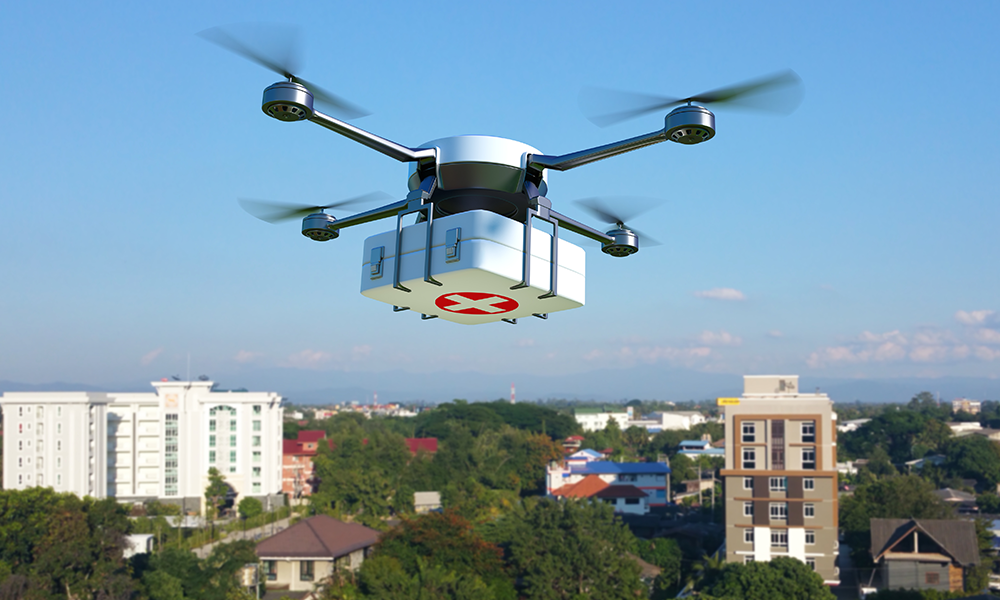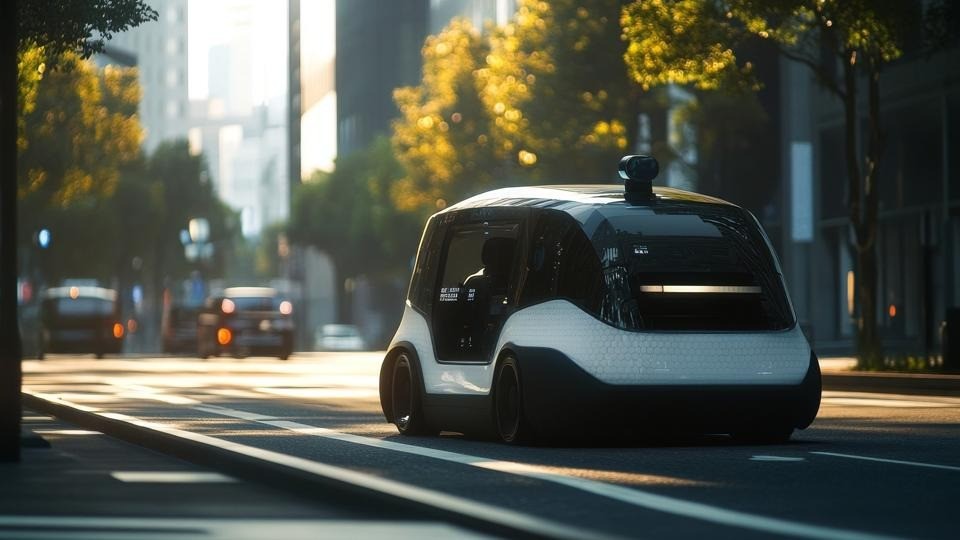Robots And Drones Are Now Used To Fight COVID-19
2 July 2021
From the initially reported outbreak of coronavirus (COVID-19) in China to the spread of it across the globe, Medtech companies are rolling out robots and drones to help fight it and provide services and care to those quarantined or practising social distancing. This pandemic has fast-tracked the “testing” of robots and drones in public as officials seek out the most expedient and safe way to grapple with the outbreak and limit contamination and spread of the virus. As one of the world’s most influential tech innovators and a country that had prioritised the advancement of robotics as a key component in its Made in China 2025 initiative, when COVID-19 broke out in China it became an ideal time to see what robots and drones could do to support humans in battling the virus. Here are some of the ways robots and drones are being used to fight COVID-19.

Telemedicine and to provide care and treatment
COVID-19 is taxing healthcare systems and medical professionals in every country it spreads to. Telemedicine, supported by robots, makes it possible for medical professionals to communicate with patients remotely, saving time and allowing possibly contagious patients to stay confined. Not only can robots communicate with individuals quarantined due to coronavirus, but they can also acquire vital patient information and help doctors treat patients. At the Wuchang field hospital, a ward was staffed with 5G-powered robots to not only help alleviate the strain on human personnel but to contain the contagion.
Delivery robots
Due to the contagiousness of COVID-19, it’s safer if human-to-human contact is minimised. Since robots are immune to infection, tech companies such as JD.com and others have stepped up to the challenge to get more robots out in force to deliver e.g. medical supplies within healthcare environments. Robots are also proving to be valuable when delivering essential items to people who shop and purchase online and are quarantined at home. Meituan Dianping, a delivery app, ramped up their contactless delivery options through autonomous vehicles and robots. Shenzhen-based startup Pudu Technology aimed to reduce cross-infection by implementing home delivery of drugs and meals via robot.
Within warehouses that support online shops, robots are also used to automate and streamline order fulfilment. The logistics affiliate of Alibaba, often referred to as China’s version of Amazon, uses robots in its warehouses and has been involved with getting medical aid donations to areas of China such as Wuhan that need them for testing and treatment of the coronavirus.
Food delivery service Ele.me used robots to deliver meals to quarantined individuals held in a hotel who were suspected of having the virus. While many of these companies have experimented or already launched robot delivery on a small scale, the demand created by the coronavirus made them scale up their robotic services. Robots were also used in kitchens to cook food and to serve food at restaurants.
Sterilisation robots
Danish company UVD Robots shipped robots to Chinese hospitals to disinfect rooms, and when fully deployed, the robots will operate in all Chinese provinces. These robots emit an ultraviolet light throughout an area to kill viruses and bacteria without exposing any human personnel to infection. These bots are remotely controlled by a health worker who remains a safe distance away. Since there are thousands of deaths each year attributed to hospital-acquired infections, automation to prevent disease is a great opportunity for robots.
Youibot, another Chinese robot maker, created a sterilisation robot in just 14 days based on the demand from the marketplace.
Robots get back to work
One of the issues experienced by Chinese companies, specifically in the factories that supply many enterprises around the world, was how to continue production without human personnel available. The disruption to the world’s supply chain will continue to ripple through the global economy even as COVID-19 cases decrease in China. A survey by the American Chamber of Commerce Shanghai found nearly half of the 109 companies polled said that their biggest challenge in the coming weeks was to have enough staff to run the full production lines in factories. This reality will make ramping up robotic automation even more appealing to reduce costs, ensure continuity and productivity even if the country experiences another global pandemic or other shutdowns.
Drones
Shenzhen company MicroMultiCopter deployed more than 100 drones to many Chinese cities that could patrol areas and observe crowds and traffic more efficiently. Those not wearing masks in public spaces could be identified. These flying robots are also used to broadcast information to a larger area than traditional loudspeakers can. Another way drones are used to fight coronavirus is to spray disinfectant in public spaces. Through thermal sensing, drones are also helping officials with crowd management and to identify people with elevated body temperatures, which could indicate they have the virus.
Japanese company Terra Drone ensured that medical and other supplies were safely transported from Xinchang County’s disease control centre to the Xinchang County People’s Hospital without exposing humans to infection. They obtained the first urban drone delivery licence issued by the Civil Aviation Administration of China. According to reporting by GPS World, using drones speeds up transport by 50% compared to road transportation. In addition to speed, it doesn’t expose human delivery drivers to any risks.
In an outbreak, the scale of coronavirus (COVID-19) robots and drones could become an increasingly essential support for humans in fighting the virus.
Related Articles
The Quantum Revolution Is Here, And It’s About More Than Just Computing
By now, “smart” versions exist of just about every home appliance, gadget and gizmos we can think of. However, manufacturers continue[...]
Flying Taxis And Self-Driving Trucks Arrive In 2026: 6 Transport Trends To Watch
By now, “smart” versions exist of just about every home appliance, gadget and gizmos we can think of. However, manufacturers continue[...]
Technology in Action: My Key Takeaways on How AI and Quantum Are Accelerating Global Transformation
By now, “smart” versions exist of just about every home appliance, gadget and gizmos we can think of. However, manufacturers continue[...]
The 10 Biggest Consumer Technology Trends Of 2026
By now, “smart” versions exist of just about every home appliance, gadget and gizmos we can think of. However, manufacturers continue[...]
The 7 Banking And Fintech Trends That Will Define 2026
By now, “smart” versions exist of just about every home appliance, gadget and gizmos we can think of. However, manufacturers continue[...]
The 8 Biggest Healthcare Technology Trends To Watch In 2026
By now, “smart” versions exist of just about every home appliance, gadget and gizmos we can think of. However, manufacturers continue[...]
Sign up to Stay in Touch!
Bernard Marr is a world-renowned futurist, influencer and thought leader in the fields of business and technology, with a passion for using technology for the good of humanity.
He is a best-selling author of over 20 books, writes a regular column for Forbes and advises and coaches many of the world’s best-known organisations.
He has a combined following of 4 million people across his social media channels and newsletters and was ranked by LinkedIn as one of the top 5 business influencers in the world.
Bernard’s latest book is ‘Generative AI in Practice’.










Social Media